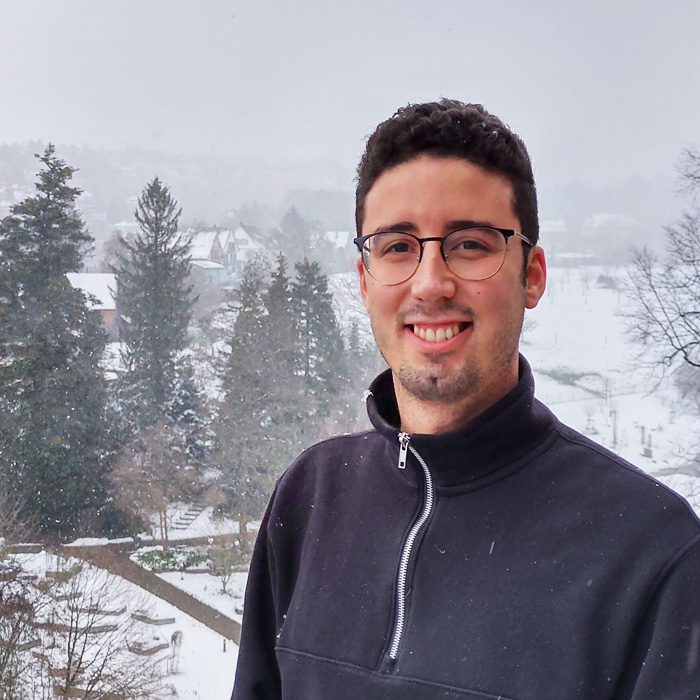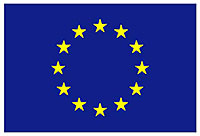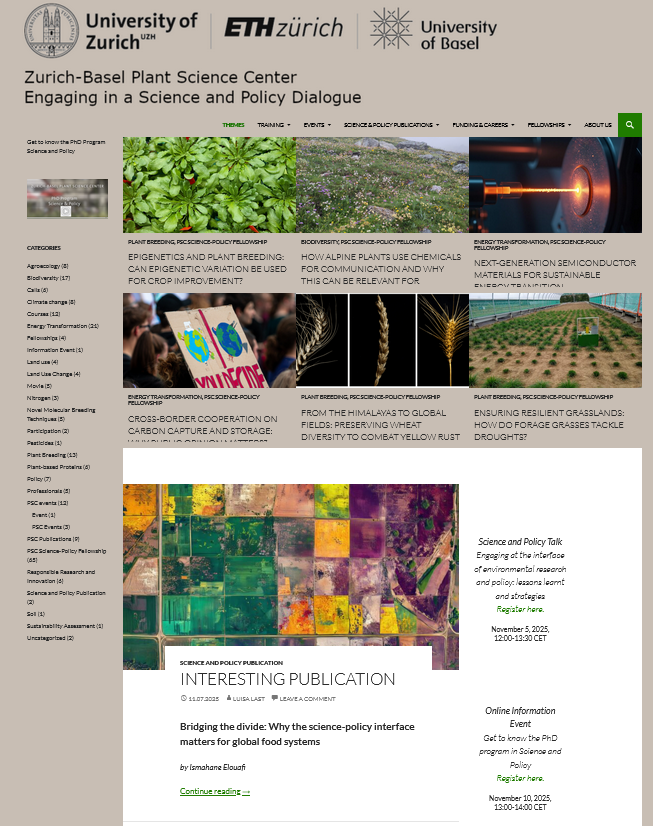ChromoBreed: From Chromatin to Plant Breeding

Fellowship Duration: Oct 2020 - Sep 2024
PhD Student: Alberto Linares
Principal Investigator: Prof. Sylvain Bischof, Epigenetics and Chromatin Biology, Department of Plant and Microbial Biology, University of Zurich, Switzerland
Project Partner: Dr. Etienne Bucher, epibreed AG, Basel
Research Fields: Plant Science, Chromatin Biology, Epigenetics, Transposable Elements, Plant Breeding
Project Description
The ability to engineer genetically modified crop species has promise to revolutionize plant breeding, through targeted modifications of specific plant traits. However, widespread use of this technology is currently hampered by ethical and legal barriers. A potentially exciting alternative that avoids some of the concerns in standard bioengineering is to remodel the epigenome to improve plant traits. Importantly, this approach may be subjected to less strict regulation because it does not permanently modify the DNA base sequence and may thus be more likely to gain public support.
In this project, we will characterize the epigenetic mechanisms underlying a novel breeding technology that is based on the mobility of endogenous transposable elements (TEs). In recent years, TEs have been used as a promising tool to alter plant traits. TEs are DNA sequences that can multiply and move to different genomic locations. Because they are potentially deleterious for the genome, TEs are targeted by repressive epigenetic mechanisms that silence their expression and thus prevent their ability to transpose to unwanted regions of the genome. However, certain stimuli or environmental conditions can favor the reactivation of TEs. For example, exposure to heat leads to the transcriptional upregulation of the retrotransposon ONSEN and its transposition throughout the genome. This heat-inducible transposition system has been used to screen for new ONSEN insertions resulting in expression changes of nearby genes that control plant traits. Despite its successful application in Arabidopsis and rice, the molecular mechanisms controlling TE reactivation for this breeding strategy remains to be elucidated.
The proposed project aims at elucidating the epigenetic pathways that regulate the activity of TEs and apply the obtained knowledge to improve transposition-mediated plant breeding. Together with the partner organization, epibreed AG, this emerging technology will be applied to improve plant traits. The obtained results will be published open access in international peer-reviewed journals and presented at international conferences. New molecular pathways leading to improved transposition-mediated breeding will be patented.
This fellowship is hosted by the Zurich-Basel Plant Science Center.
Activities and Publications
Doctoral thesis Histone Variant H3.3 Deposition in Arabidopsis thaliana
Book chapter author on Identification of Plant Chromatin Interaction Networks Using IP-MS and co-IP (2024)
Conference talk at the EPIPLANT Conference 2024: Plant Epigenetics (Clermont-Ferrand, France, July 2024)
Conference poster at the Rigi 2024: Exploring Epigenetics – Interdisciplinary Insights beyond DNA sequence (Zurich, Switzerland, Jan 2024)
Conference poster at the PSC PhD Symposium 2022 (Zurich, Switzerland, Dec 2022)
Conference poster at the EMBL conference: Chromatin and Epigenetics (Online, May 2021)
"Netzwerke in der Natur Wahrnehmen" - Workshop at Scientifica (Impressions) (Sep 2023)
"Plant Blindness" - Workshop at Fascination of Plants Day (May 2022)
Secondment
During his secondment Alberto focused on investigating the activation of transposable elements in plant lines that were defective in replication and histone variant deposition machinery, as well as in plant lines subjected to heat stress. The core method he worked with during this time was Mobilome-Seq, a specialized sequencing technique designed to capture and identify active transposable elements within a genome. First, he carried out the experimental procedures involved in Mobilome-Seq, which included extracting and preparing genomic DNA, linear DNA digestion and rolling circle amplification of the remaining circular DNA, followed by constructing libraries specific to transposable element detection. Working with the advanced equipment, including an in-house sequencer, allowed Alberto to complete the experimental workflow efficiently. This direct involvement in the experimental side of the process deepened his understanding of how this technique enables precise identification of transposable elements in A. thaliana genome. In addition to the wet lab work, he was introduced to the bioinformatic pipeline that follows the sequencing step, which is essential for analyzing the large-scale sequence data produced by Mobilome-Seq. This training gave him exposure to the tools and software used for mapping and annotating transposable elements, further enhancing my skill set in computational analysis.
Collaboratively, their work generated a dataset that revealed key insights into the activation dynamics of transposable elements in the studied plant lines. This output not only advanced his own research but also contributed to a broader understanding of how transposable elements respond to disruptions in genome maintenance and environmental stresses. The secondment was a highly valuable experience, allowing him to develop expertise in both laboratory and bioinformatic techniques while working in a state-of-the-art research environment.
Duration: Jan 2024 - March 2024
Stakeholder Workshop
The stakeholder workshop "The Future of Epigenetics in Plant Breeding" which took place on February 28, 2025 (online) brought together leading experts and researchers to discuss the potential of epigenetics to shape the future of plant breeding. This event explored how epigenetics-based techniques could revolutionize agriculture while addressing the ethical, legal, and regulatory challenges that accompany these advancements.
The workshop featured insightful talks by two distinguished experts:
Dr. Maximilian Kardung – an authority in gene-editing policy and legislation in Europe, who provided a detailed perspective on the regulatory landscape surrounding epigenetics.
Dr. Etienne Bucher – a researcher at Agroscope specializing in epigenetics-based plant breeding techniques, who shared his expertise on the scientific and legal aspects of these new approaches in Europe and Switzerland.
The audience consisted of researchers from diverse scientific disciplines, ensuring a rich and multidisciplinary discussion on the implications of epigenetics in agriculture.
Together with Dusan Denic, Alberto played a key role in shaping this workshop by:
Researching and identifying suitable experts to provide a balanced perspective on both scientific and regulatory aspects of epigenetics.
Coordinating with the invited speakers to align their presentations with the workshop’s objectives.
Reaching out to researchers from various fields to ensure a multidisciplinary audience and fruitful discussions.
Moderating the final discussion session to facilitate engagement between the speakers and participants.
This event reinforced the critical need for aligning scientific advancements with regulatory frameworks. The main messages included:
Regulatory Challenges: The successful implementation of epigenetics-based plant breeding techniques depends on navigating complex legal frameworks and gaining regulatory approvals.
Multidisciplinary Collaboration: Progress in plant breeding requires close cooperation between researchers, policymakers, breeders, and society to ensure ethical and practical adoption.
Scientific Engagement in Policy Discussions: Scientists need to actively participate in shaping regulatory and public discussions to ensure that cutting-edge research translates into practical applications in agriculture.
The workshop provided valuable insights into how we can better align our research with societal values and expectations. Engaging with economists and breeders highlighted the importance of considering economic and regulatory factors alongside scientific advancements. It became clear that bridging the gap between research and real-world applications requires 1) a strengthened collaboration between scientists, policymakers, and industry stakeholders; 2) greater involvement in regulatory discussions to facilitate the responsible adoption of new plant breeding techniques, and 3) increased awareness of the financial and legislative challenges that affect the scalability and impact of epigenetics in agriculture.



